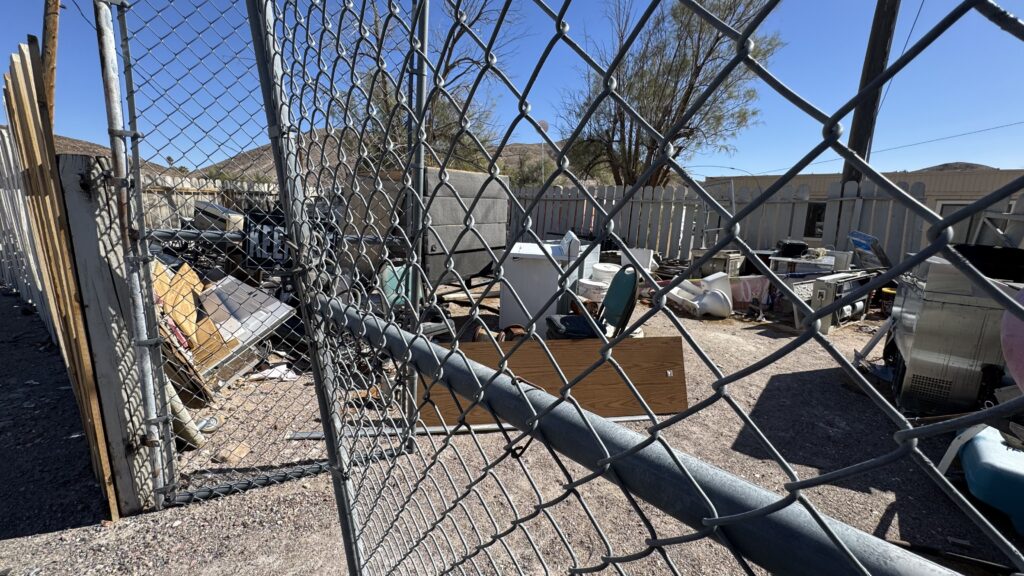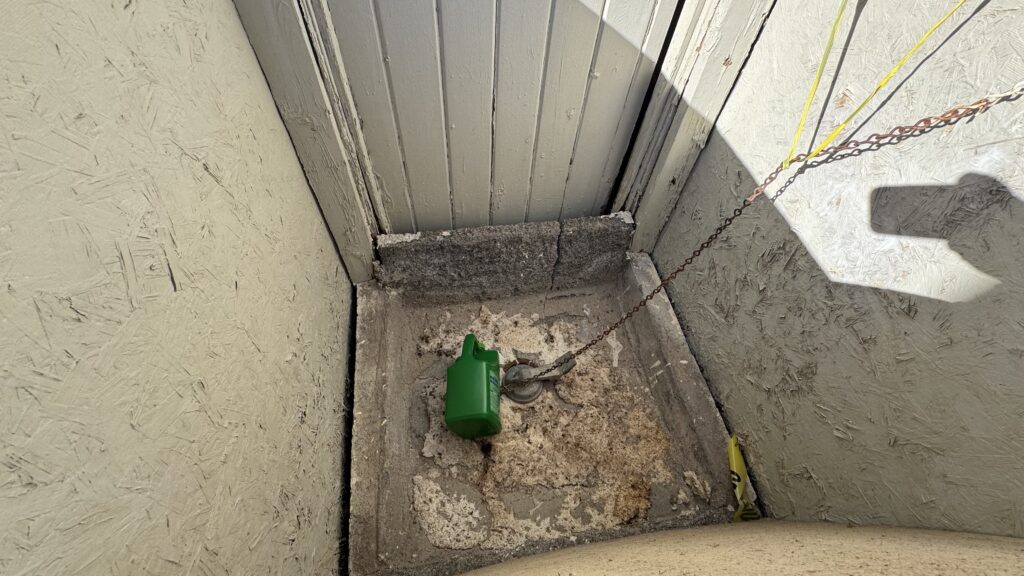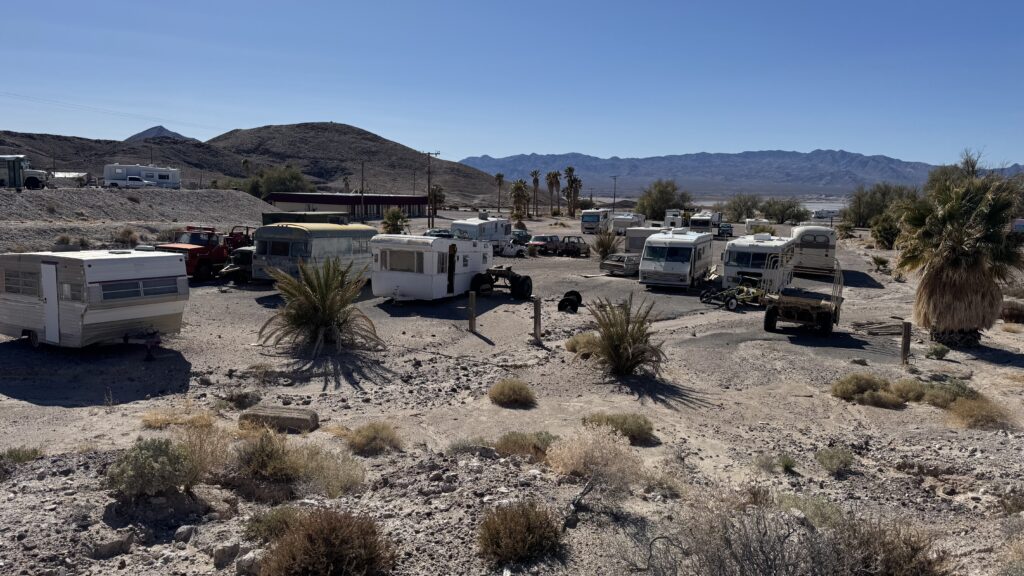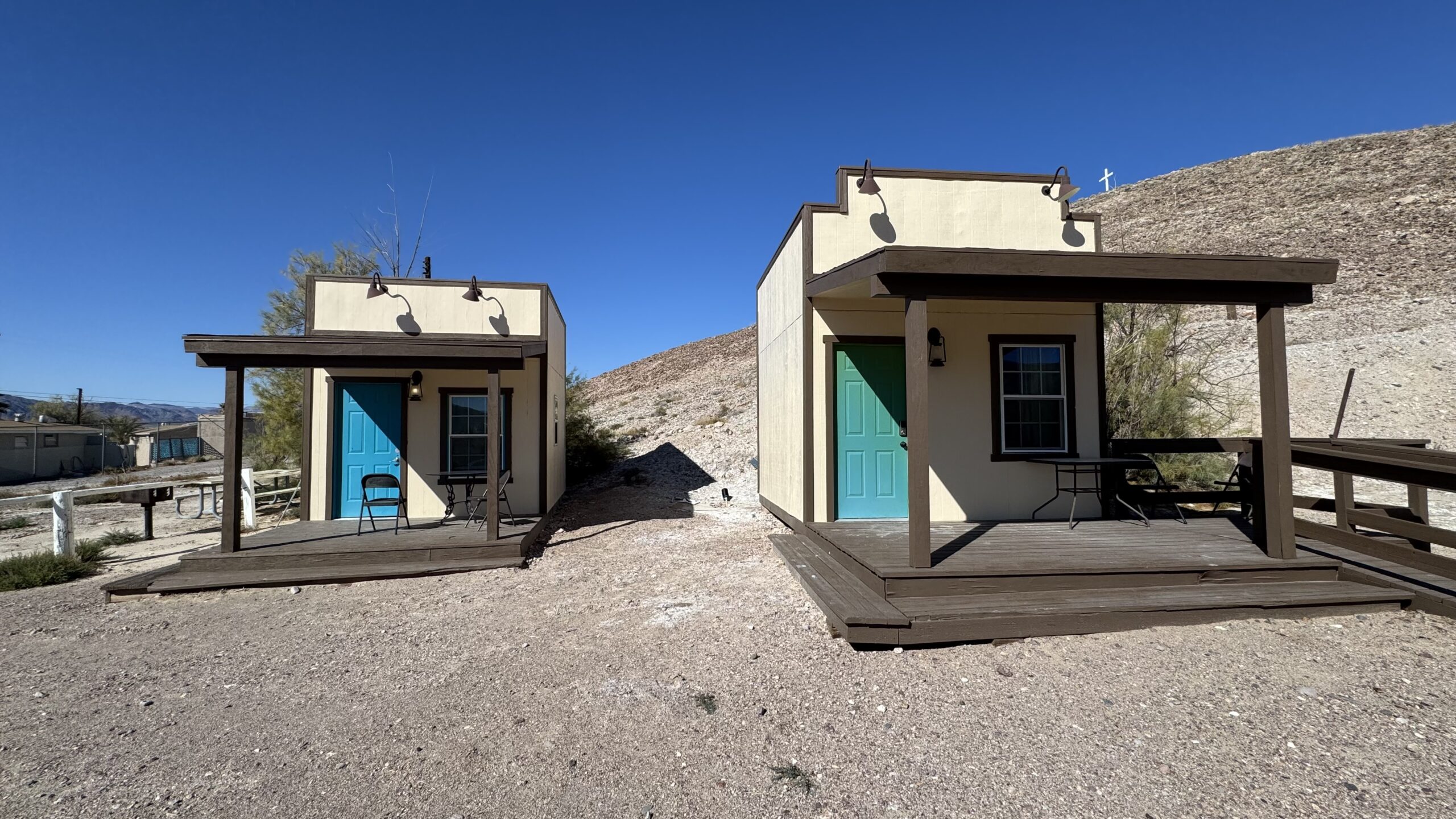The future of the Tecopa Hot Springs Park and Campground—one of Southeast Inyo County’s most treasured public amenities—continues in uncertainty, as the current operator has been given a 30-day deadline to cure a series of contractual deficiencies or face eviction.
Inyo County issued a statement: “Regarding the Tecopa Hot Springs Campground and Pools, numerous deficiencies with the current concessionaire’s performance under the current concessionaire agreement have been identified. The County has given the concessionaire 30 days to cure the deficiencies and bring operation of the facility into compliance with the contract. It is the County’s hope and intention that the pools and campground – currently subject to the normal seasonal closure – reopen in the fall as planned. The County has relied on concessionaires to operate the pools and campground under concessionaire agreements for the past 20 years and has invested considerable amounts of funding in the facility’s operation over many decades.”
The campground is slated to remain open through May 31, operating on reduced summer hours from 8 a.m. to 8 p.m.
Paul Barnes, managing partner of Tecopa Hot Springs Conservancy LLC, signed a concession agreement with Inyo County in 2021 that required a series of urgent infrastructure upgrades and a rigorous maintenance schedule for the campground and its signature natural hot springs. But four years later, county inspection reports and resident complaints suggest that many of those promised improvements remain incomplete, with critical maintenance issues unresolved.
Barnes did not respond to a request for comment. When TecopaCabana visited the bathhouse kiosk, a man identified as Barnes’ business partner, Chris, declined to comment, saying, “I’m not at liberty to comment.”

According to the terms of the agreement, the County may terminate the lease “after thirty (30) day written notice if… said noncompliance has not been cured,” or if the concessionaire fails to make a good faith effort to begin curing any issue that cannot be completed within 30 days.
Local speculation about the lease’s status erupted this week on the community Facebook thread called “Happyville,” where multiple residents shared posts alleging that the operator had received a formal 30-day notice requiring up to $400,000 in upgrades—though the County has not publicly confirmed that figure—which seems to be the concessionaire’s estimation of costs to complete the unfulfilled lease requirements.
One commenter shared sentiments attributed to Barnes, saying the County had placed “unreasonable demands” on him while providing “more info to others than to them.”
When reached for comment, District 5 Supervisor Will Wadelton declined to speak on the specifics of Barnes’s situation but emphasized what he already shared directly with one community member about the County’s broader priorities.
“I can’t comment on Paul’s situation,” Wadelton said, “but the place won’t close. Myself and the County know the importance of the property.”
Whether viewed as reasonable or not, the list of required upgrades has been known to the concessionaire since the agreement’s signing in 2021.
The concession agreement from that year includes a detailed list of required improvements, including restroom and plumbing upgrades, ADA-compliant picnic tables and paths, and substantial electrical work to improve campsite safety and capacity. The contract also requires daily cleaning and sanitization of the bathhouses and campground restrooms, as well as routine inspections, hazard mitigation, and sewer system upkeep.
However, a July 2024 inspection by Inyo County, the most recent documentation available at press time, found widespread noncompliance. County staff documented unsanitary restrooms, unpermitted “glamping” cabins with active utility connections, multiple abandoned trailers, and evidence that the campground was still housing long-term tenants despite seasonal closures. The inspection also noted improperly connected electrical systems and concerns about the stability of RV electrical ports.

Among the identified violations:
- Unpermitted Structures: At least six “glamping” cabins (pictured above), some occupied and connected to electric and sewer systems, were never submitted for approval by the Bureau of Land Management (BLM).
- Sanitation Failures: All three west-side bathhouses showed signs of prolonged neglect.
- Unauthorized Use: Several trailers remained plugged into the campground’s electrical grid even while the facility was closed.
- Storage of Derelict RVs: The northwest section of the park held eight stored trailers, four of which appeared condemned or abandoned.
Under the terms of the lease, such violations must be resolved quickly or risk triggering termination. Yet a growing chorus of community members have questioned whether the County has done enough to support the operator or communicate clearly during the compliance process. Still, the County appears resolute in its position that the public facility must meet its obligations.

Federal tax documents from their most recently available year reveal Tecopa Hot Springs Conservancy LLC ended 2022 with a net loss—further highlighting the financial pressures now at the center of a standoff with Inyo County over lease compliance.
The concessionaire’s 2022 tax return paints a picture of a campground operation under financial stress. Despite generating six figures in revenue, the business failed to turn a profit, carried significant liabilities, and had negative capital balances—suggesting it may lack the resources needed to fulfill its contractual obligations under the County lease. These issues provide financial context to the County’s recent enforcement actions and the concessionaire’s claims of hardship.
According to the partnership’s 2022 IRS Form 1065, the Conservancy reported gross receipts of $146,930, with the cost of goods sold totaling $131,658, leaving a gross profit of just $15,272. After subtracting total deductions of $23,722, the operation recorded a net loss of $8,450 for the year.
The filings suggest that, despite generating steady revenue, the business’s operational expenses and overhead outpaced its income—raising concerns about its capacity to meet the financial and maintenance obligations laid out in its lease with the County.
Detailed expense statements filed with the return show that the vast majority of the campground’s operational costs—$126,886 in total—were absorbed by claiming essentials such as:
- Utilities: $53,117
- Cabin and grounds maintenance: $26,059
- Insurance: $11,037
- Vehicle and delivery expenses: $9,697
- Volunteer expenses: $8,300
- Additional spending on casual labor, disposal fees, equipment rentals, tools, and store supplies filled out the remainder.
Separately, the business claimed $14,741 in other deductions, which included:
- Professional fees: $4,190
- Office expenses: $5,831
- Telephone and communications: $3,287
- Travel, meals, postage, and banking charges: Minor but cumulative costs
While no final decision has been announced, the next 30 days will be pivotal. Either Barnes makes visible progress on long-stalled improvements, or the County may begin seeking a new operator for the property—a process that would likely involve months of legal review, procurement, and public input.
With its mineral-rich waters, storied history, and position along the Amargosa River and gateway to Death Valley National Park, the Tecopa Hot Springs Campground is a lifeline for both tourism and community health and recreation. Its management is a matter of public trust—and with that trust, increasingly, comes public scrutiny.


Leave a Reply